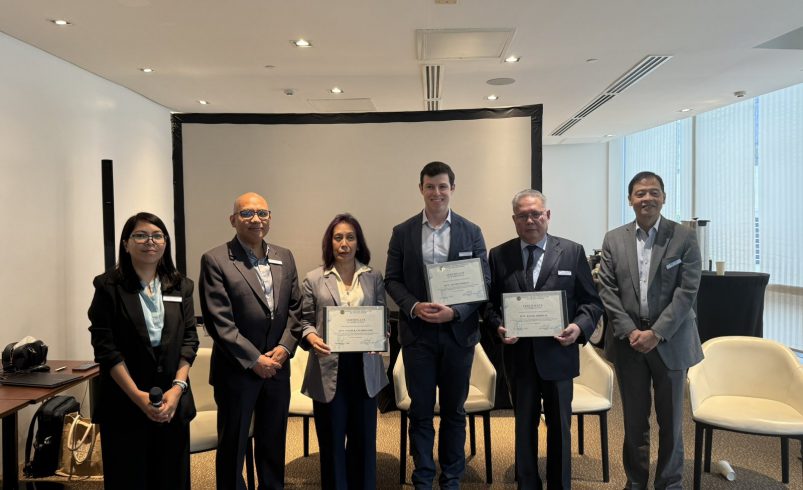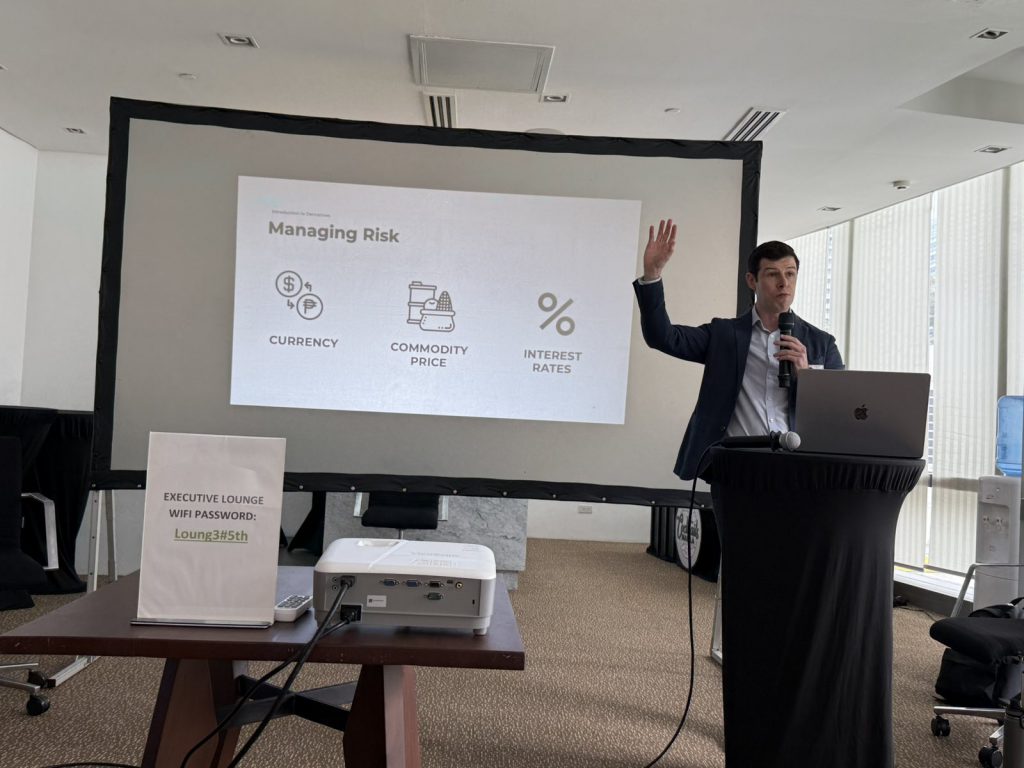From Risk to Reliability: GTM Derivatives Unlock Billions in Investment Decisions
- September 23, 2025
- 0

Green Tiger Markets (GTM) is introducing energy derivatives as a way to stabilize electricity costs in the Philippines, where prices on the Wholesale Electricity Spot Market (WESM) can swing from below PHP 3,000 to above PHP 10,000 per megawatt-hour (MWh).
Through cash-settled forward contracts, generators and large consumers can now hedge against these price swings. The approach provides predictable cash flows, making it easier for companies to plan operations and secure financing. For a market long held back by volatility, this could open the door to billions in new energy and industrial investments.
Oliver Pearson, General Counsel and Head of Asia Pacific at GTM, discussed this during the Power 101: Introduction to Financial Derivatives for Philippine Energy Companies, a seminar organized by the Energy Lawyers Association of the Philippines (ELAP). The event was held on September 17, 2025 at the Fifth on 5th Events Place in Taguig.

What derivatives do
A derivative is a financial contract whose value is tied to another asset—in this case, electricity prices.
On GTM’s platform, a generator can lock in a fixed selling price for power in advance. A cement plant or data center can do the same for its electricity costs. At the end of the period, both sides settle the difference in cash against the WESM average price.
“This means revenue or costs become predictable, even if spot prices jump or crash,” Pearson said. “It’s about creating certainty over your revenues or costs, so you can plan your business with confidence.”
Why companies need it
Unpredictable energy prices are a barrier to investment:
“Hedging reduces those risks. It gives companies the stability to commit to projects and investments,” Pearson explained.
Solar developers benefit from midday-specific contracts that line up with their generation hours. Energy-intensive industries—cement, bottling, data centers—can fix energy costs and improve competitiveness.
For investors, smoother cash flows mean better valuations. For consumers, it means fixed-price offers that protect them from WESM volatility.
Built on ISDA standards
GTM uses the International Swaps and Derivatives Association (ISDA) Master Agreement, the global standard for derivatives.
The ISDA framework ensures that:
“This gives counterparties confidence that contracts are enforceable and consistent with international practice,” Pearson said.
Bigger impact on the market
For the Philippines, energy derivatives could become a critical tool. By removing uncertainty, companies can plan expansions, lenders can back projects, and foreign investors can see a more predictable environment.
“The volatility of WESM prices has long discouraged investment,” Pearson noted. “If you don’t know what your revenues or costs will be, you hesitate to expand. By hedging, you gain the certainty needed to build new projects, whether you are a generator or a consumer.”
The country is targeting 50% renewable energy by 2040, but grid constraints and price volatility remain obstacles. Derivatives can help bridge the gap by giving players certainty while infrastructure and regulation catch up.
By moving from risk to reliability, GTM is making hedging tools available to local players, turning unpredictable power costs into stable revenues and supporting long-term growth in the sector.
Follow Power Philippines on Facebook and LinkedIn or join our Viber community for more updates.